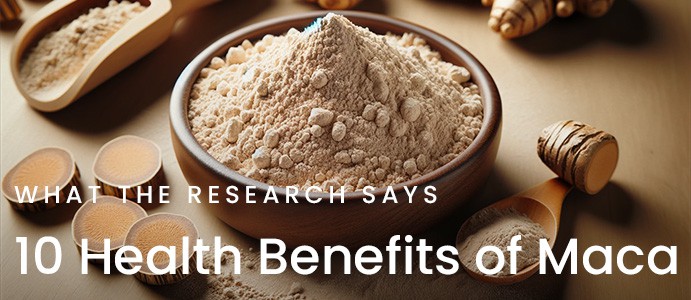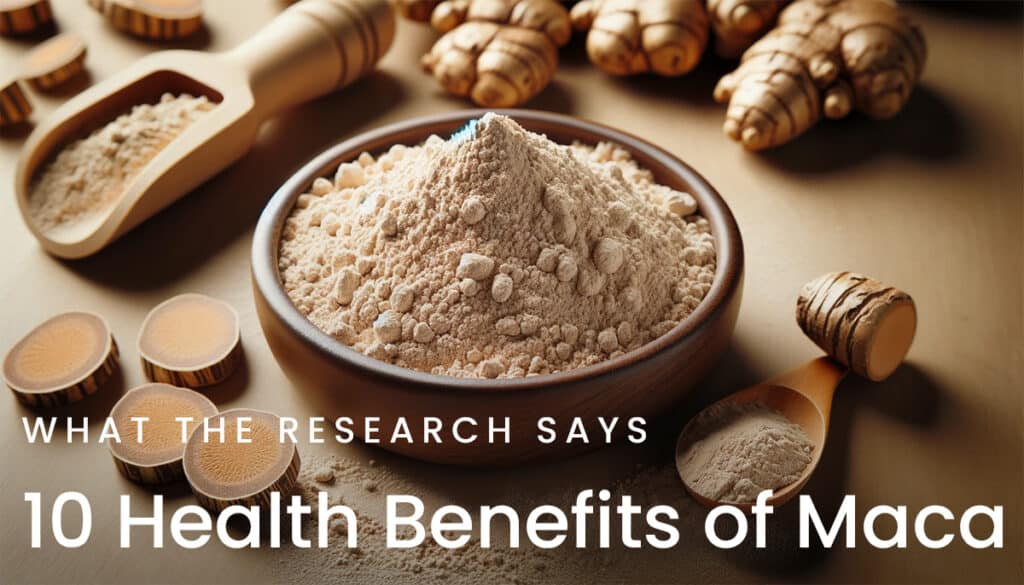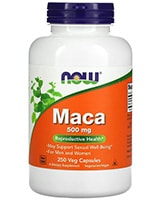

Introduction
Maca (Lepidium meyenii) is a plant native to the high Andes of Peru, known for its hardy root that thrives in harsh mountainous conditions. For centuries, it has been a staple in the diet of Andean communities, valued for its nutritional and medicinal properties. In recent years, maca has gained global recognition as a superfood, with a growing body of research exploring its health benefits. This article delves into the scientific evidence behind the purported health advantages of maca, offering a comprehensive overview for those interested in integrating this ancient root into their wellness regimen.
Nutritional Profile of Maca
Maca root is rich in essential nutrients, making it a potent dietary supplement. It contains a variety of amino acids, which are the building blocks of proteins, essential for various bodily functions. Maca is also a good source of important minerals such as iron, calcium, copper, zinc, and potassium. Unique to maca are certain metabolites like macaridine, macaene, macamides, thiohydantoins, and maca alkaloids, which contribute to its distinctive health properties. This nutritional complexity underpins many of the health benefits attributed to maca, ranging from enhanced energy to improved mental well-being.
Benefit 1: Enhancing Energy and Endurance
Maca is often touted for its ability to boost energy and endurance. This claim is supported by both traditional use and scientific research. Studies have shown that maca can improve endurance in athletes, likely due to its rich nutritional profile that supports better energy metabolism and enhanced antioxidant status[1]Stone, M., Ibarra, A., Roller, M., Zangara, A., & Stevenson, E. (2009). A pilot investigation into the effect of maca supplementation on physical activity and sexual desire in sportsmen. Journal of Ethnopharmacology, 126(3), 574-576. https://doi.org/10.1016/j.jep.2009.09.012. These properties make maca a popular supplement among those seeking natural ways to increase their physical stamina and athletic performance.
Benefit 2: Improving Sexual Health and Libido
One of the most well-known benefits of maca is its potential to enhance sexual health and libido in both men and women. Research has indicated that maca can positively affect sexual desire and may alleviate sexual dysfunction[2]Shin, B.-C., Lee, M. S., Yang, E. J., Lim, H.-S., & Ernst, E. (2010). Maca (L. meyenii) for improving sexual function: A systematic review. BMC Complementary and Alternative Medicine, 10, 44. https://doi.org/10.1186/1472-6882-10-44. Several studies have explored its effects on libido, with findings suggesting improvements in sexual desire following maca supplementation. While the exact mechanisms are not fully understood, it is believed that maca’s unique nutrient composition plays a key role in these benefits.
Benefit 3: Benefits for Menopause Symptoms
Maca has been studied for its potential to alleviate symptoms associated with menopause. Research suggests that maca can help reduce common menopausal symptoms, such as hot flashes, mood swings, and interrupted sleep[3]Meissner, H. O., Mscisz, A., Reich-Bilinska, H., Mrozikiewicz, P., Bobkiewicz-Kozlowska, T., Kedzia, B., Lowicka, A., & Barchia, I. (2006). Hormone-balancing effect of pre-gelatinized organic maca (Lepidium peruvianum Chacon): (III) Clinical responses of early-postmenopausal women to Maca in double blind, randomized, placebo-controlled, crossover configuration, outpatient study. International Journal of Biomedical Science, 2(4), 375-394. Retrieved from https://www.ncbi.nlm.nih.gov/pmc/articles/PMC3614644/. These benefits are particularly significant as they offer a natural alternative to hormone replacement therapies, which can have various side effects. The exact mechanism by which maca aids menopausal symptoms is not fully understood, but it is thought to be related to its nutritional composition and potential hormonal balancing effects.
Benefit 4: Mental Health – Reducing Anxiety and Depression
Emerging research indicates that maca may have positive effects on mental health, particularly in reducing symptoms of anxiety and depression. Studies have shown that regular consumption of maca can lead to significant reductions in anxiety and depressive symptoms[4]Stojanovska, L., Law, C., Lai, B., Chung, T., Nelson, K., Day, S., Apostolopoulos, V., & Haines, C. (2015). Maca reduces blood pressure and depression, in a pilot study in postmenopausal women. Climacteric, 18(1), 69-78. https://doi.org/10.3109/13697137.2014.929649. This is particularly noteworthy as it suggests a potential role for maca in holistic mental health management. The mood-enhancing effects of maca are believed to be linked to its unique amino acid profile and antioxidant properties, which may impact neurotransmitter activity in the brain.
Benefit 5: Cognitive Benefits – Learning and Memory
Maca has shown promise in enhancing cognitive functions, particularly in the realms of learning and memory. Studies suggest that the consumption of maca can lead to improvements in cognitive performance, potentially due to its high concentration of antioxidants and neuroprotective compounds[5]Peres, N. da S. L., Bortoluzzi, L. C. P., Marques, L. L. M., Formigoni, M., Fuchs, R. H. B., Droval, A. A., & Cardoso, F. A. R. (2020). Medicinal effects of Peruvian maca (Lepidium meyenii): A review. Food & Function, 11(1), 83-92. https://doi.org/10.1039/c9fo02732g. These properties may help in mitigating oxidative stress and enhancing neurotransmitter activity, both of which are crucial for optimal brain function. While more research is needed to fully understand the extent of these benefits, current findings are encouraging for those seeking natural cognitive enhancers.
Benefit 6: Fertility Enhancement
Another significant area of interest is maca’s potential role in enhancing fertility, especially in men. Research has indicated that maca supplementation can improve semen quality, including increases in sperm concentration and motility[6]Lee, H. W., Lee, M. S., Qu, F., Lee, J.-W., & Kim, E. (2022). Maca (Lepidium meyenii Walp.) on semen quality parameters: A systematic review and meta-analysis. Frontiers in Pharmacology, 13, 934740. https://doi.org/10.3389/fphar.2022.934740. These effects are particularly beneficial for individuals facing fertility challenges. The exact mechanisms through which maca improves fertility are not entirely clear, but they are thought to be linked to its nutrient-rich profile and possible hormone-regulating properties.
Benefit 7: Skin Health
While not as widely recognized as other benefits, maca may also have positive effects on skin health. Some studies suggest that maca can improve skin tone and protect against UV radiation, potentially due to its high levels of vitamins and minerals that are essential for healthy skin[7]Gonzales-Castañeda, C., Rivera, V., Chirinos, A. L., Evelson, P., & Gonzales, G. F. (2011). Photoprotection against the UVB-induced oxidative stress and epidermal damage in mice using leaves of three different varieties of Lepidium meyenii (maca). International Journal of Dermatology, 50(8), 928-938. https://doi.org/10.1111/j.1365-4632.2010.04793.x. Additionally, the antioxidant properties of maca may contribute to reducing oxidative stress, a factor in skin aging and damage. However, research in this area is still emerging, and more studies are needed to fully establish maca’s role in skin health.
Benefit 8: Antioxidant Properties and Immune Boosting
Maca is rich in antioxidants, which are compounds that fight free radicals and can reduce oxidative stress in the body[8]Sandoval, M., Okuhama, N. N., Angeles, F. M., Melchor, V. V., Condezo, L. A., Lao, J., & Miller, M. J. S. (2002). Antioxidant activity of the cruciferous vegetable Maca (Lepidium meyenii). Food Chemistry, 79(2), 207-213. https://doi.org/10.1016/S0308-8146(02)00133-4. This antioxidant capacity is significant for overall health, as it can help in preventing chronic diseases and boost the immune system. The immune-boosting effects of maca are particularly important, as they suggest a role for the root in supporting the body’s natural defence mechanisms against various pathogens and diseases.
Benefit 9: Balancing Hormone Levels
Maca has been associated with the ability to balance hormone levels in the body[9]Meissner, H. O., Mscisz, A., Reich-Bilinska, H., Mrozikiewicz, P., Bobkiewicz-Kozlowska, T., Kedzia, B., Lowicka, A., & Barchia, I. (2006). Hormone-balancing effect of pre-gelatinized organic maca (Lepidium peruvianum Chacon): (III) Clinical responses of early-postmenopausal women to Maca in double blind, randomized, placebo-controlled, crossover configuration, outpatient study. International Journal of Biomedical Science, 2(4), 375-394. Retrieved from https://www.ncbi.nlm.nih.gov/pmc/articles/PMC3614644/. This is particularly relevant for conditions characterized by hormonal imbalances, such as polycystic ovary syndrome (PCOS) and thyroid disorders. While maca does not contain hormones itself, it is believed to help regulate the endocrine system, leading to more balanced hormone production. This regulatory effect can contribute to alleviating symptoms of hormonal imbalances, such as irregular menstrual cycles, mood swings, and fertility issues.
Benefit 10: General Health and Wellbeing
In addition to its specific health benefits, maca contributes to overall health and well-being. Its nutrient-dense profile supports various bodily functions, from metabolic health to reducing chronic inflammation. Regular consumption of maca can thus be a valuable addition to a balanced diet, contributing to sustained energy levels, improved mood, and general vitality[10]Gonzales-Arimborgo, C., Yupanqui, I., Montero, E., Alarcón-Yaquetto, D. E., Zevallos-Concha, A., Caballero, L., Gasco, M., Zhao, J., Khan, I. A., & Gonzales, G. F. (2016). Acceptability, safety, and efficacy of oral administration of extracts of black or red maca (Lepidium meyenii) in adult human subjects: A randomized, double-blind, placebo-controlled study. Pharmaceuticals (Basel), 9(3), 49. https://doi.org/10.3390/ph9030049. This makes maca a versatile supplement for those looking to enhance their overall health naturally.
Safety and Dosage Recommendations
When considering incorporating maca into your diet, it’s important to be aware of safety and dosage guidelines. Generally, maca is considered safe for most people when consumed in moderate amounts. However, as with any supplement, there can be potential side effects, especially when taken in large doses. These may include gastrointestinal disturbances and alterations in mood or hormone levels.
The appropriate dosage of maca can vary depending on the individual’s age, health status, and the intended use. Most studies have used dosages ranging from 1.5 to 5 grams per day. It is advisable to start with a lower dose and gradually increase it to assess tolerance. Additionally, it’s important to consult with a healthcare provider before starting any new supplement, especially for those with existing health conditions or those who are pregnant or breastfeeding.
Conclusion
Maca root offers a range of health benefits, from enhancing energy and sexual health to improving mood and cognitive functions. Its rich nutritional profile and adaptogenic properties make it a valuable supplement for various health concerns. While research on maca is ongoing, current evidence supports its use as a natural enhancer of physical and mental well-being. As with any supplement, it should be used responsibly and in consultation with healthcare professionals. Embracing maca as part of a balanced lifestyle can contribute to overall health and vitality.
Buy Maca Online Review Comparison Table
| Product | Company | Quantity | Price | Country | Website |
 Maca Capsules | iHerb | 250 pills (500mg) | $10.51 |  Worldwide, AU | Visit Website >> |
References
| ↑1 | Stone, M., Ibarra, A., Roller, M., Zangara, A., & Stevenson, E. (2009). A pilot investigation into the effect of maca supplementation on physical activity and sexual desire in sportsmen. Journal of Ethnopharmacology, 126(3), 574-576. https://doi.org/10.1016/j.jep.2009.09.012 |
|---|---|
| ↑2 | Shin, B.-C., Lee, M. S., Yang, E. J., Lim, H.-S., & Ernst, E. (2010). Maca (L. meyenii) for improving sexual function: A systematic review. BMC Complementary and Alternative Medicine, 10, 44. https://doi.org/10.1186/1472-6882-10-44 |
| ↑3, ↑9 | Meissner, H. O., Mscisz, A., Reich-Bilinska, H., Mrozikiewicz, P., Bobkiewicz-Kozlowska, T., Kedzia, B., Lowicka, A., & Barchia, I. (2006). Hormone-balancing effect of pre-gelatinized organic maca (Lepidium peruvianum Chacon): (III) Clinical responses of early-postmenopausal women to Maca in double blind, randomized, placebo-controlled, crossover configuration, outpatient study. International Journal of Biomedical Science, 2(4), 375-394. Retrieved from https://www.ncbi.nlm.nih.gov/pmc/articles/PMC3614644/ |
| ↑4 | Stojanovska, L., Law, C., Lai, B., Chung, T., Nelson, K., Day, S., Apostolopoulos, V., & Haines, C. (2015). Maca reduces blood pressure and depression, in a pilot study in postmenopausal women. Climacteric, 18(1), 69-78. https://doi.org/10.3109/13697137.2014.929649 |
| ↑5 | Peres, N. da S. L., Bortoluzzi, L. C. P., Marques, L. L. M., Formigoni, M., Fuchs, R. H. B., Droval, A. A., & Cardoso, F. A. R. (2020). Medicinal effects of Peruvian maca (Lepidium meyenii): A review. Food & Function, 11(1), 83-92. https://doi.org/10.1039/c9fo02732g |
| ↑6 | Lee, H. W., Lee, M. S., Qu, F., Lee, J.-W., & Kim, E. (2022). Maca (Lepidium meyenii Walp.) on semen quality parameters: A systematic review and meta-analysis. Frontiers in Pharmacology, 13, 934740. https://doi.org/10.3389/fphar.2022.934740 |
| ↑7 | Gonzales-Castañeda, C., Rivera, V., Chirinos, A. L., Evelson, P., & Gonzales, G. F. (2011). Photoprotection against the UVB-induced oxidative stress and epidermal damage in mice using leaves of three different varieties of Lepidium meyenii (maca). International Journal of Dermatology, 50(8), 928-938. https://doi.org/10.1111/j.1365-4632.2010.04793.x |
| ↑8 | Sandoval, M., Okuhama, N. N., Angeles, F. M., Melchor, V. V., Condezo, L. A., Lao, J., & Miller, M. J. S. (2002). Antioxidant activity of the cruciferous vegetable Maca (Lepidium meyenii). Food Chemistry, 79(2), 207-213. https://doi.org/10.1016/S0308-8146(02)00133-4 |
| ↑10 | Gonzales-Arimborgo, C., Yupanqui, I., Montero, E., Alarcón-Yaquetto, D. E., Zevallos-Concha, A., Caballero, L., Gasco, M., Zhao, J., Khan, I. A., & Gonzales, G. F. (2016). Acceptability, safety, and efficacy of oral administration of extracts of black or red maca (Lepidium meyenii) in adult human subjects: A randomized, double-blind, placebo-controlled study. Pharmaceuticals (Basel), 9(3), 49. https://doi.org/10.3390/ph9030049 |

Leave a Reply